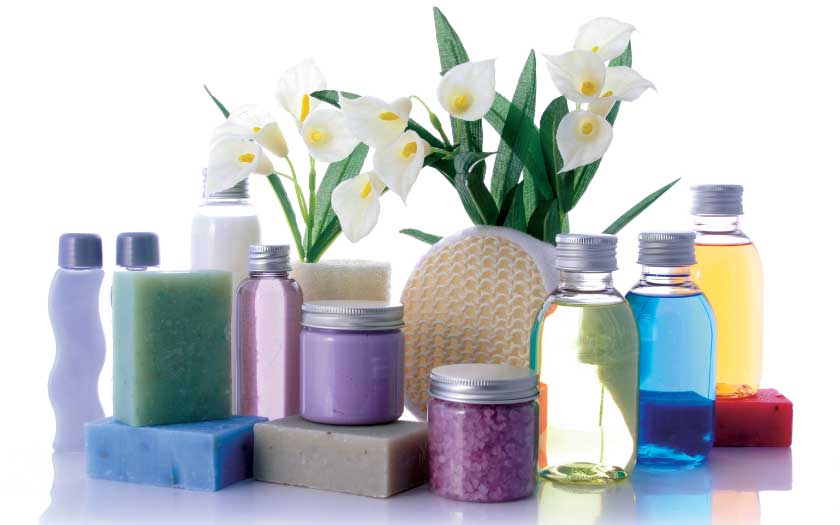While pregnant women already know that what they consume is important to the well-being of their growing baby, many women, however, do not realize that watching what they put on their bodies for the sake of beauty, is just as important.
Products applied on the skin and scalp are capable of penetrating the skin barrier and the ingredients in these products can be absorbed into your body. With a developing baby in your belly, this is a vital concern. In short, its not just everything you eat, but the stuff you apply, or come into contact with, can and will affect not only you but also your baby.
Here are two culprit ingredients found in many beauty care products that every pregnant mama should be a little bit wary about.
1. Retinoids
Found in many anti-aging moisturizers, these are lauded for effectiveness in reducing lines and wrinkles. They are also said to improve skin tone. Retinoids are a type of vitamin A that speeds up cell division (quickening your skin’s renewal) and prevent skin collagen from breaking down.
While there is no data to support that retinoids as an ingredient in creams or lotions can harm an unborn child, studies, however, have shown that high doses of vitamin A during pregnancy can be harmful to a fetus. Hence, retinoids are one of the skin-care ingredients that experts discourage women from using whilst pregnant. Note: Oral retinoids, such as isotretinoin, which is used to treat acne, has been known to cause birth defects.
Retinoids are also known as:
- Differin (adapalene)
- Retin-A, Renova (tretinoin)
- Retinoic acid
- Retinol
- Retinyl linoleate
- Retinyl palmitate
- Tazorac and avage (Tazarotene)
2. Salicylic acid
Salicylic acid is a mild acid that is used to treat certain skin disorders, including acne, and it is a popular ingredient in skincare products, especially in cleansers and toners. It works by penetrating facial oils to get deep into pores and clean out dead skin cells. Salicylic acid is in the aspirin family, thus is effective in reducing inflammation or redness. BHA, or beta hydroxy acid, is a form of salicylic acid and is used in some topical exfoliants to reverse signs of aging.
High doses of the acid in its oral form have been shown in studies to cause birth defects and pregnancy complications. However, experts are also being cautious by warning that pregnant women avoid or at least, limit the use of the topical form of salicylic acid. Small amounts applied to the skin — such as a salicylic acid-containing toner used once or twice a day — are considered safe. However, using/applying facial or body peels containing salicylic acid will be akin to taking more aspirin than recommended while pregnant. The more you apply, the more gets absorbed into your bloodstream. Note: Alpha hydroxy acids, sometimes listed as AHAs, glycolic acid, or lactic acid, are safe.
Salicylic acid is also known as:
- Beta hydroxy acid
- BHA
Pregnancy & Makeup
Wanting to look pretty and dolled up are natural inclinations of many pregnant women. However, it pays to be a little wary about what you put on your face during pregnancy. Many makeup products nowadays are marked “noncomedogenic” or “nonacnegenic” — meaning they’re oil-free and don’t clog pores. These are safe and will not affect the health of your baby. As much as possible, try to avoid cosmetics that contain retinol or salicylic acid. If you want to feel completely safe, try using products made from minerals only. These products use ingredients that primarily sit on top of the skin and don’t cause irritation for most people.
Be wary of the following ingredients on make-up labels during pregnancy:
- Differin (adapalene)
- Retin-A, Renova (tretinoin)
- Retinoic acid
- Retinol
- Retinyl linoleate
- Retinyl palmitate
- Tazorac and avage (Tazarotene)
- Tretinoin
Hair Colouring
It’s generally agreed that using permanent hair dyes in the first trimester (when the baby is going through important neurological changes) is not a good idea when you’re pregnant. After the third month, you can use them but with caution. However, it’s still better if you don’t apply the colour to the scalp, where the active ingredients, ammonia and peroxide, may pass through the skin and into the bloodstream. Henna is a natural alternative that many pregnant women choose as the safest option of all.
Dark Under-eye Circle
Dark circles under the eyes is not an unusual look for pregnant women, particularly in the last trimester when anxiousness is the order of the day. However challenging it might seem, the ideal solution is to get as much sleep as possible. For a quick fix, wet a flannel with cold water and hold it over your eyes for a few minutes.
Hair Removal
This can be more painful when you’re pregnant, because the skin is more sensitive. Waxing can be very sore, but it will expose you (and your baby) to fewer chemicals than bleach or hair removing creams. Electrolysis, which sends electrical currents into the hair follicles in the skin, is not recommended.
All puffed up?
Water retention is a common issue in pregnancy because the growing baby weight puts pressure on the blood vessels in the abdomen and legs. This can show up in puffy eyes and tight shiny skin on the face. You can help ease the problem by taking the weight off your feet as often as possible. Another solution is to put ice cubes (or bags of frozen peas placed inside a towel) on your ankles.



